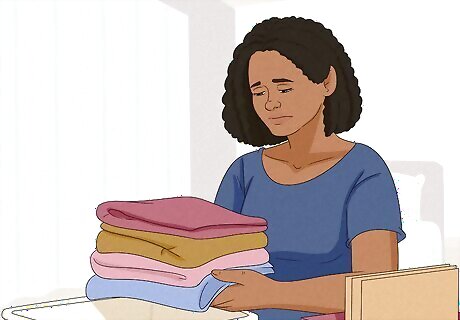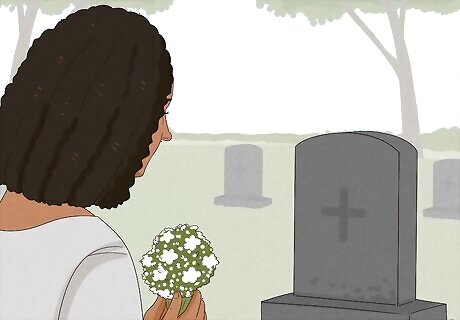
views
When you first learn about the death

Listen carefully to what is being said by those conveying the news to you. If you are not alone, have someone present with you, a person that you trust. If you are alone, contact a person that you trust while the detectives are present and repeat to the person you contacted, what has been stated to you.

Clarify the statements that are being stated to you. For example, you might wish to clarify why the police asking certain questions such as: "What do you mean by asking 'Was Ella Suggs my mother?'". If something doesn't make sense to you, ask them to repeat it or to use different words to explain themselves. Determine with facts what type of death it was, such as suicide, homicide, accidental or natural causes.

Prepare yourself to experience an array of emotions, starting with disbelief. Pay close attention to how your feelings and thoughts will vacillate within the hour, day, week, etc. See this as perfectly normal. Learn how to be okay with not knowing how to think or what to feel. These thoughts will become more pronounced as you try to cope with living life without your mother. Realize that you may feel the need to go into an investigative mode, to help your need to understand why the death occurred. Do not fill in the blanks with questionable details. You must know whether the information that you have is correct. Prepare to use the information that you have gathered as a jigsaw puzzle. Be okay with the missing pieces.

Try not to be alone as you start trying to cope with the information. Surround yourself with people who care about you and who have a no-strings-attached type of relationship with you. Be okay with delegating responsibility to others who are responsible and able to interpret how you would want things handled.
Coping in the subsequent weeks and months

Understand that in the first weeks, you will be flooded with details and tasks. This will change once the funeral and burial are concluded.

Be prepared for vivid dreams and/or recall. You may start having dreams of seeing your mom. There will be such a desperate cry or yearning to reconnect physically--with her that you will find yourself crying in your sleep.

Do something that helps you stay in the moment. Activities such as journaling or blogging events can help you to capture what you think and how you feel. After a period of months, you may have difficulties recalling what happened since the loss and these written memories will help you.

Do not sleep the day away. Try to resume to the normalcy of your days before your mom died. This will help you reduce the chances of clinical depression setting in. However, the suddenness of the death may lead to trauma symptoms that can become Post Traumatic Stress Disorder (PTSD).

Pay attention to how you are viewing the reality of the death. Sudden death is difficult to wrap your mind around and will always lead back to this sense of yearning or longing to see, feel or hear the person again. This is normal, so allow yourself to sit through the discomfort. Do a daily check in with yourself and be honest. Ask yourself, how am I doing today and what do I need? Know that living will be hard. There will be a lot of days that your thoughts may get the best of you. This is normal. Feeling numb is also normal––there is no right or wrong way to react and grieve.

Listen to inspirational messages, call people that you are close with, ask for help if the emotions become unbearable. Contact the detectives, hospital, coroners office or whomever necessary to help ease your thoughts.

Find your own ways to stay connected with your mother. You may want to create a memorial, a memory book or an online site dedicated to her. You may want to simply think about her. What is important is to find ways that work best for you and to not feel that you have to do anything to "display" your grief or connectedness. Go to the cemetery if it helps you to feel connected. Cry, scream, laugh if necessary. It will keep you grounded in reality. Take your time going through the belongings of your mother. They do not need to be sorted immediately––get around to doing this when you feel ready.

Keep staying in the moment. Try not to focus too much on what future things will be different without your mother because it will exacerbate your transition from point A to point B. Time is key when you're healing from a loss.


















Comments
0 comment